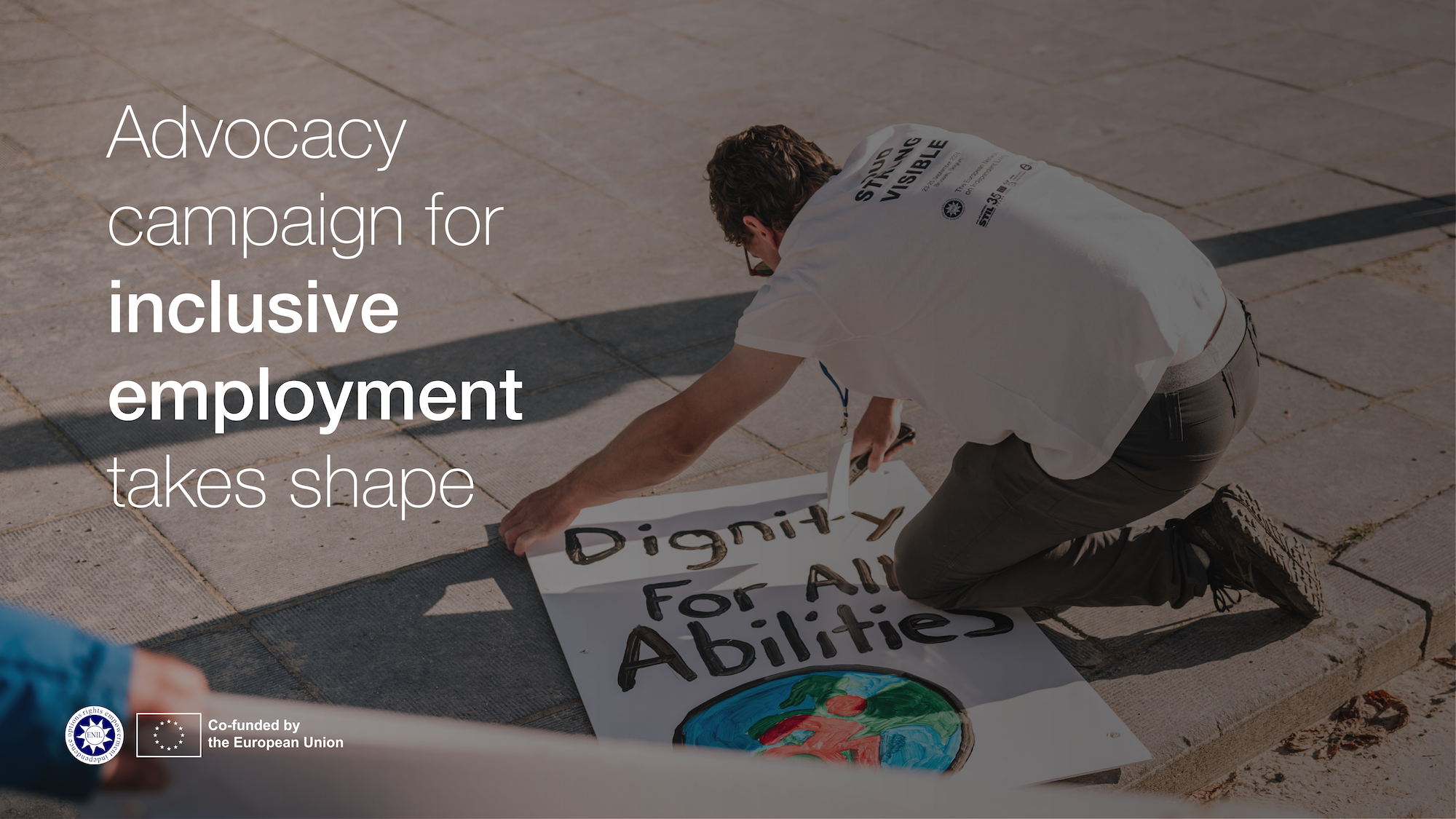My name is Teodor Mladenov and for two years – between May 2017 and April 2019 – I had the privilege of working as Marie Curie Individual Fellow in the European Network on Independent Living (ENIL). I implemented the project ‘User-Led Personal Assistance in the European Union: A Critical Comparative Analysis’, funded by the European Commission through its Horizon 2020 programme.
The aim of the project was to compare and evaluate personal assistance (PA) schemes for disabled people across the European Union (EU). During the first stage of the project’s implementation, I did a survey among PA users and independent living advocates. An analysis of the survey results was published in Disability & Society in 2019.
During the next stage of the project’s implementation, I used the survey results to develop the PA Checklist – a tool for evaluation of PA schemes from the perspectives of independent living and the social model of disability. The checklist was developed in collaboration with Dr Yvo Pokern, a statistician from the University College London.
The PA Checklist was piloted in November and December 2018. It was applied to PA schemes in eight European countries: Belgium (Flanders), Bulgaria (Sofia), Ireland, Serbia, Slovenia, Spain (Andalucía), Sweden and the United Kingdom. The results allowed, for the first time, to rank PA schemes according to independent living principles.
PA is available in many EU member states, but its quality and user-centredness vary greatly. PA schemes are characterised by diverse levels of funding, dissimilar practices of administering, and differing eligibility criteria. The PA Checklist serves as a guide in navigating this unevenness of forms and availability of PA in the EU. It champions a user-centred and user-led perspective.
The results from the pilot application of the PA Checklist were discussed during a conference held in ENIL’s headquarters in Brussels on 25 March 2019. A key message from the conference was the negative impact of cuts to PA on the independent living of disabled people in the EU. Such cuts have been part of austerity measures which have intensified in the aftermath of the 2007/2008 financial crisis. Austerity has confined disabled people to their homes or to residential institutions for social care.
The PA Checklist can help independent living advocates to fight against cuts and for improvements of PA schemes in their countries. Periodic ranking of PA schemes based on independent living principles can also help monitor the quality of PA and undertake corrective action when needed. Wider application of the PA Checklist would create a more comprehensive picture of the quality and availability of PA in Europe.
The PA Checklist is appended to the PA Checklist report. People interested in applying the checklist to PA schemes in their countries are encouraged to contact ENIL for additional guidance.
I take this opportunity to thank those who responded to the survey, the experts who applied the PA Checklist to PA schemes in their countries, the participants and speakers in the concluding project conference, my supervisor Ines Bulic Cojocariu and my other colleagues at ENIL for their generous help with the project implementation!
Resources available online:
- final project report: https://enil.eu/wp-content/uploads/2019/06/ULPA-Final-Report_FINAL.pdf
- PA survey inventory: https://enil.eu/wp-content/uploads/2019/04/PA_Inventory.pdf
- summary of the answers to the PA survey (raw data): https://enil.eu/wp-content/uploads/2019/04/PA_Inventory_raw_data.pdf
- analysis of the PA survey results in Disability & Society: https://www.tandfonline.com/doi/full/10.1080/09687599.2019.1621740
- report on the concluding project conference: https://enil.eu/news/conference-the-present-and-future-of-personal-assistance-in-europe/
- video recording of the concluding project conference on YouTube: https://www.youtube.com/watch?v=htx0z10XZeU
- PA Checklist report, including the PA Checklist as an appendix: https://enil.eu/wp-content/uploads/2019/02/Mladenov_Pokern_Bulic-PA_Checklist.pdf
For additional information and further enquiries, please contact secretariat@enil.eu.
This project has received funding from the European Union’s Horizon 2020 research and innovation programme under the Marie Sklodowska-Curie grant agreement No 747027. This document reflects only the author’s view. The Research Executive Agency of the European Commission is not responsible for any use that may be made of the information it contains.
Teodor Mladenov, June 2019


